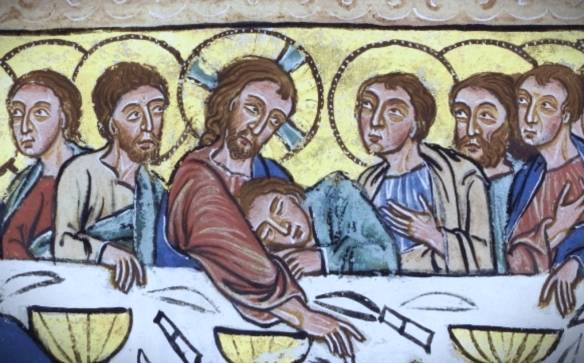God is not an analogue to analyze. God instead is a triune and eternal relationship of Father, Son, and Holy Spirit, one God (de Deo uno) in three persons (de Deo trino) to be inhabited, through Christ, and enjoyed. The Christian is in an immediate relationship with the triune God through union with Jesus Christ. We are indeed, as Christians, in an intimate and personal relationship with the living God. Not because we are persons in relationship with God—thus predicating what God’s relationality and personalist reality must be—but because God is eternally personal and [onto]relational within the inner-reality (in se) of His life. In other words, we have intimacy with God not because of some type of from below emotionalism we foist upon God, but because of who He is as personal and relational within His inner being.
It seems to me that there are some, especially those of the intellectualist orientation (often academics), who want to poo-poo the idea that Christians ought to be in this warm-hearted love relationship with God. They want to think, seemingly, that because of an identifiable movement within Protestantism, particularly as that is found in the work of Phillip Jakob Spener and Nikolaus Ludwig, count von Zinzendorf, in 17th and 18th century Germany, and then later in England, through the Keswick spiritual tradition, and also in America, within the revivalist movements, and many more threads, that such intimacy talk and religion vis-à-vis God can be dismissed and relegated to an index and categorization of church history (and sociology). Indeed, while many movements within the history of the church can be described by the intellectual and theological historians, this in and of itself doesn’t negate the theological substance that may or may not stand behind these types of shifts and orientations among the people of God through the centuries.
I am simply wanting to register that at a purely theological level the idea that the Christian is growing in the grace and knowledge of Jesus Christ entails a deeply personal and warm-hearted relationship with God, indeed, a dialogical (prayerful and worshipful) one, wherein the sheep can know the Shepherd’s voice. And this, as already noted, is not because of anything inherent to an ‘below’ urge from us to God. But instead, it is from an ‘above’ movement of who God freely has chosen to be for us in Jesus Christ; and this in correlation with who God eternally is in His triune Self. This is how the Christian encounters God, by the Spirit, through whom we affirm that Jesus is Lord. The Christian doesn’t encounter a speculatively produced pure act (actus purus) or pure being God whose reality is adumbrated by our philosophical negations and projections upon what this being must be like. No, the Christian, by definition, only is such as they come into encounter with the One who is their Brother, who is their Father, in the bond of the Holy Spirit. God determines, He pre-destines who He is in Himself to be who we become in Christ by Grace (not nature); that is, co-heirs with Jesus Christ, beholding the glory the Son has eternally shared with the Father in the bondage of the Holy Spirit.
The sum of it is that we ought to pursue this personalist, relational relationship with the living God because that is what He has already determined to be the case for us in Jesus Christ. We ought to be in doxological adoration of who He has Self-revealed and exegeted Himself to be for us in Jesus Christ; in the kerygmatic reality of the Good News that He is in proclamation. He isn’t a God out there, but a God with us, and God ‘closer to us than we are to ourselves’ (per Barth). That said, He isn’t available to be taken captive by our own untoward passions and desires. He instead sets the frame in the sobriety of His own life for us. As such, our worship and relationship with Him is predicated upon this type of discoursing, dialoguing intercourse with Him wherein what it means to be personal, relational, and intimate is dictated by who He is for us, rather than who we are towards Him (in our fallen frames of dust). He sets the boundaries of relationship relative to who He is, and because He created us to be in relationship with who He is, our re-creation in Christ finds a relational correspondence, in a fitting way, as that has been already laid for us in His telos (purpose) for the world in Jesus Christ.
Hopefully the reader is seeing how I am attempting to thread this needle. I.e., We are in a personalist, onto-relational relationship with the living and triune God on His terms rather than an abstract set of terms that we determine about Him based upon our own fallen and broken dispositions.
Thanks for reading me thinking out loud again.

